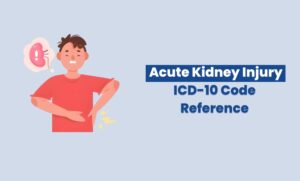Medical billing requires precision, especially when billing for procedures done during a global period. If you’ve ever submitted claims for surgical services, you may have encountered modifier 79. This modifier is used when a second, unrelated procedure is performed by the same physician during the global period of a previous surgery.
Applying this modifier incorrectly can result in denials and payment delays. This article explains what modifier 79 is used for, when to apply it, examples of its correct usage, and how it compares to modifier 24.
What is Modifier 79?
Modifier 79 is a medical billing code defined by CPT as an “unrelated procedure or service by the same physician during the postoperative period.” It is used when a provider performs a second, unrelated surgical procedure within the global period of an earlier surgery.
The global period refers to the timeframe in which post-surgical care is included in the payment for the original procedure. During this period, services related to the surgery are bundled into a single payment.
However, if a second procedure is unrelated, this modifier is appended to the claim for the second procedure to indicate that it should be billed separately.
Key points to remember:
- It applies only to surgical codes.
- The second procedure must be unrelated to the first.
- It must be performed by the same physician within the global period.
When to Use Modifier 79?
It should be used in the following situations:
- The second procedure occurs during the global period of a previous surgery.
- The second procedure is completely unrelated to the original surgery.
- A different diagnosis is typically assigned to the second procedure, confirming it is unrelated.
Example:
A patient had surgery for a broken arm, but a week later, they need an unrelated gallbladder removal surgery. Even though both procedures are performed by the same physician, the second surgery is unrelated to the arm injury and requires modifier 79 on the claim.
Why documentation is crucial:
Insurance payers may question claims with this modifier. Proper documentation that clearly shows the procedures are unrelated helps avoid denials and ensures timely payment.
Examples
Example 1:
A patient is recovering from surgery on their right knee (within a 90-day global period). During this time, they injure their left wrist, requiring arthroscopic surgery. Since the wrist injury is unrelated to the knee surgery, the wrist procedure should include this modifier.
Example 2:
A surgeon amputates a patient’s right little finger due to an infection. Within the postoperative period, the same patient crushes their left little toe in an accident, requiring another amputation. Since the procedures are unrelated, this modifier is added to the second procedure code.
Example 3:
A dermatologist removes actinic keratoses via cryosurgery. Seven days later, the same patient returns with a suspicious lesion, which the dermatologist biopsies. Since the biopsy is unrelated to the cryosurgery, the biopsy procedure is billed with this modifier.
Modifier 79 vs Modifier 24
While modifier 79 applies to unrelated surgical procedures, modifier 24 is used to indicate that an evaluation and management (E/M) service is unrelated to a prior surgery.
Key differences:
- Modifier 79 is only applied to surgical codes.
- Modifier 24 is used with E/M services, such as office visits.
- Both modifiers require documentation to prove that the service or procedure is unrelated to the original surgery.
Example for Modifier 24:
A patient undergoes surgery on their left shoulder. Within the global period, they return to the surgeon with an unrelated complaint of a sore throat. The E/M service for the throat complaint would be billed with modifier 24.
Common Errors and Tips for Correct Use
Errors in applying this modifier can lead to claim denials and delayed payments. Here are some common mistakes and how to avoid them:
1. Using Modifier 79 on Related Procedures
It should only be used for unrelated procedures. If the second procedure is connected to the recovery or complications of the first surgery, another modifier (or no modifier) may be appropriate.
Tip: Always confirm that the second procedure has a different diagnosis and is truly unrelated to the first surgery.
2. Applying Modifier 79 to Non-Surgical Codes
is specifically for surgical procedures. Applying it to non-surgical codes, such as E/M services, can result in denials.
Tip: Use modifier 24 for unrelated E/M services performed during a global period.
3. Insufficient Documentation
Insurance companies may deny claims if there is no clear documentation proving that the second procedure was unrelated to the first.
Tip: Ensure medical records provide detailed notes explaining the necessity of the second procedure and its lack of connection to the original surgery.
Importance of Documentation for Modifier 79
Proper documentation supports your claims and prevents insurance denials. This includes:
- A full description of the procedure.
- The diagnosis is linked to each procedure.
- Evidence that the two procedures are unrelated.
Insurance payers often scrutinize claims with this modifier, so providing strong documentation upfront helps to reduce back-and-forth appeals.
Key Takeaways
Let’s summarize the essential information about modifier 79:
- It is used for unrelated surgical procedures performed within a global period.
- It applies only to procedures performed by the same physician.
- Proper documentation is crucial to ensure smooth claims processing.
- It differs from modifier 24, which applies to unrelated E/M services.
Understanding the correct use of this modifier helps billing professionals avoid costly mistakes and ensures that providers are reimbursed for their work without unnecessary delays.





